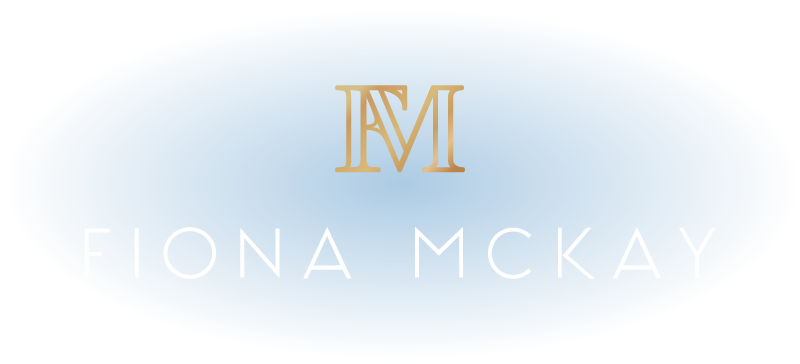How menopause depression affects senior women in the workplace
The 10th September is World Suicide Prevention Day and undiagnosed depression is a major challenge for working menopausal women. Suicide rates for women are in the age group of 45 - 54, and that is the menopausal age.
And as senior and high performing female leaders often have to keep their menopausal symptoms under wraps, for fear of being ousted or excited by shareholders, the risk of depression, anxiety increases, addictions can start or resurface and in very worst case scenarios this can lead to suicidal thoughts and actions.
What do the experts say on HRT and anti-depressants?
When a woman of menopausal age presents to a GP with signs of depression, hormone replacement therapy should be on the list of treatments alongside antidepressants, says an Australian expert.
Professor Jayashri Kulkarni, Director of the HER Centre Australia at Monash University, told InSight+ that menopausal depression was underdiagnosed, underfunded and under-researched, but was a significant factor in the mental health of women of menopausal age.
“Hormone replacement therapy should definitely be considered an option,” she said.
Writing in Nature last week, Professor Kulkarni said that “depression caused by menopause can be more severe than that experienced by pre- and post-menopausal women (or by men of any age)”.
“Not coincidentally, suicide rates for women also are highest in the 45–64 age group,” she wrote, citing US research by Curtin and colleagues. The time when perimenopause and menopause arrive.
Professor Kulkarni wrote that there were several reasons why menopausal depression had not received enough attention, including the fact that it is not recognised as a specific condition in any of the standard diagnostic manuals.
“As with many aspects of women’s mental health, menopausal depression is down the bottom of the barrel when it comes to research funding and clinical trials,” she told InSight+.
“Patients in this group are caught between two hard rocks.
“On the one hand, there is the misogynistic far right wing which has no interest in women’s health generally. On the other hand are the far left-wing feminists who don’t want to talk about hormones, because they don’t want women in leadership positions to be seen as being at the whim of their hormones,” said Professor Kulkarni.
Where does that leave GPs with patients presenting with menopausal depression?
“GPs are the cornerstone in terms of management of these patients,” she told InSight+. “They know the patient best and are in the perfect position to diagnose and treat menopausal depression.”
One barrier treating doctors must overcome, however, is a reluctance to prescribe hormone replacement therapy.
“The good news is that hormone treatments such as oestrogen therapy can be an effective way to treat the condition — either as an adjunct to antidepressants or as a solo first-line treatment,” Professor Kulkarni wrote in Nature.
“Yet there remains considerable reluctance to use them; in many cases, a diagnosis of any form of depression still leads to an automatic prescription of an antidepressant.”
That reluctance stems from the 2002 trial from Rossouw and colleagues from the Women’s Health Initiative (WHI) which received headline media attention. The study was halted early because “the test statistic for invasive breast cancer exceeded the stopping boundary for this adverse effect and the global index statistic supported risks exceeding benefits”. The authors reported increased risk of breast cancer, heart disease, stroke, and blood clots.
“The WHI study has been refuted since, but once things like that hit the media headlines, it is very difficult to turn things around,” Professor Kulkarni told InSight+.
“Hormone replacement therapy has also advanced, including the development of synthetic selective oestrogen-receptor modulators, which should improve safety.”
Professor Kulkarni urged GPs, psychiatrists and other mental health practitioners treating women in their 40s and 50s to ask them about menopause at the start of treatment, and to be willing to prescribe hormone treatments.
The start or resurfacing of addictions
For some women, addictive behaviour and addictions can start or resurface through menopause leading on to suicidal thoughts and fatal actions. Alcohol particularly, can be an accessible common crutch for women seeking relief from their symptoms. And research has shown that alcohol raises blood oestrogen levels, which is a hormone that women become deficient in when going through menopause.
Meanwhile attempts are being made to have menopausal depression considered as a specific condition as part of clinical guidelines.
How can senior female leaders keep their health and careers as they move through menopause?
You need a plan and you need expert advice.
Just as you are sourcing advice and investing in your health with your hormone specialist, your nutritionist and your personal trainer, you need an expert menopause career coach who is also a business strategist.
How would you answer these key questions?
Do you want more and not less from your career as you move through menopause?
Are you a female founder or leader who is central to the growth strategy of your company?
Do you want to leave the corporate world behind and back yourself in a new venture?
And do you want this on your terms and in your own timeframe?
If you’ve answered yes to any of the above, then I can help you.
Fiona McKay, The Menopause Career Coach ™
Fiona McKay, The Menopause Career Coach™ - who is she?
I’m Fiona McKay, CEO and founder of The Menopause Maze™ and known in the media as The Menopause Career Coach™.
I’m a top 250 global female influencer in FemTech alongside Oprah, Whitney Wolfe-Herd and Chelsea Clinton.
I’ve been one of the main campaigners in England on getting HRT medication costs reduced and ’m an award winning career, business and transformation coach with specialist expertise in equipping female leaders and female founders to keep their careers high gear through all stages of menopause.
I work exclusively coach and advise C suite women and female founders who want to keep their careers and continue to grow their companies, using menopause as a springboard to move forward not step back.
And I went through early surgical menopause at 42 years of age whilst leading two growing companies. So I GET IT!
I researched for 7 years what female leaders need to improve their career health through menopause and created the award-winning NOPAUSE™ career coaching programme, The Menopause Maze™ community and The Menopause Maze™ workplace method.
If you want me to help you maximise your career through menopause then book in a call.
It could be the call of your career.



